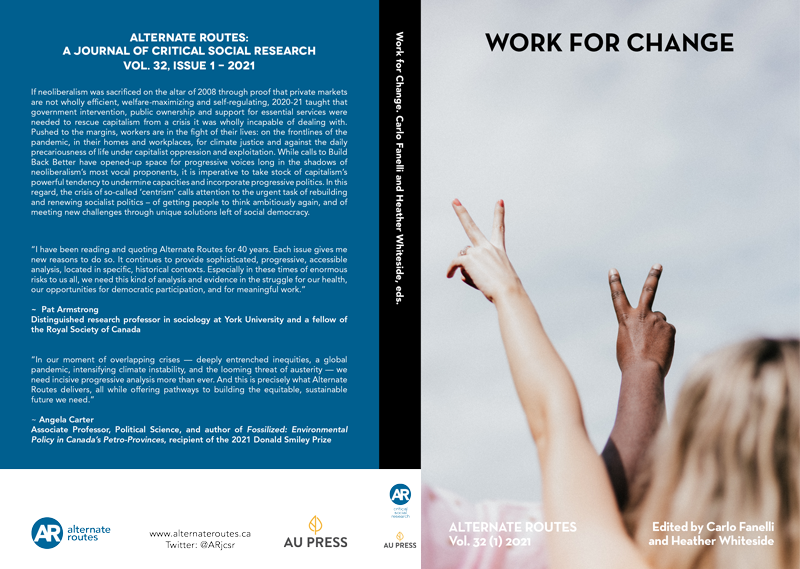The Political Economy of a Modern Pandemic: Assessing Impacts of COVID-19 on Migrants and Immigrants in Canada
Abstract
This paper explores the COVID-19 crisis with a focus on immigration and migration in Canada using a political economy lens. Neoliberalism has played a major role in shaping pandemic impacts and the responses to it. We critically assesses the deep structural inequalities that have caused disproportionate COVID-19 impacts on migrants and immigrants. Migrants and immigrants carry the unequal burden of COVID-19 because of racialization, labour precariousness, and exposure to health risks on job sites and in the poor neighborhoods and over crowded housing in which many live in. Mobility and borders have also been cast as a particular threat during the pandemic even though domestic sources are the main sources of contagion. We examine the use of borders as filtering mechanisms during COVID-19 and the negative impacts this has had on migrant populations. While crises like pandemics pose many dangers they also open up policy windows through which progressive change may be realized. We reflect on these possibilities.
Downloads
Published
How to Cite
Issue
Section
License
Articles are published in Alternate Routes: A Journal of Critical Social Research under the Creative Commons "Attribution/Non-Commercial/No Derivative Works" Canada licence.
The copyright for the articles published in this journal is retained by the authors, with first publication rights granted to the journal. By virtue of their appearance in this open access journal, articles may be used, with proper attribution, in educational and other non-commercial, not-for-profit settings. The submission of a manuscript to Alternate Routes will be taken to mean that the author understands and agrees to the following:
- the manuscript represents original work not previously published;
- the manuscript is not being considered elsewhere for publication in the same language (publication elsewhere in an alternate language does not preclude acceptance of submission to Alternate Routes);
- appropriate written copyright permissions have been secured for republication of any copyrighted material contained in the manuscript;
- copyright for this article is retained by the author, with first publication rights granted to Alternate Routes;
- by virtue of its appearance in this open access journal, it is understood that the article is freely available for use, with proper attribution, for educational and other non-commercial purposes;
- reuse of the article for commercial purposes by anyone other than the author requires permission of the author;
- the author agrees to cite Alternate Routes as a source whenever h/she later republishes or reuses the article in other platforms.


